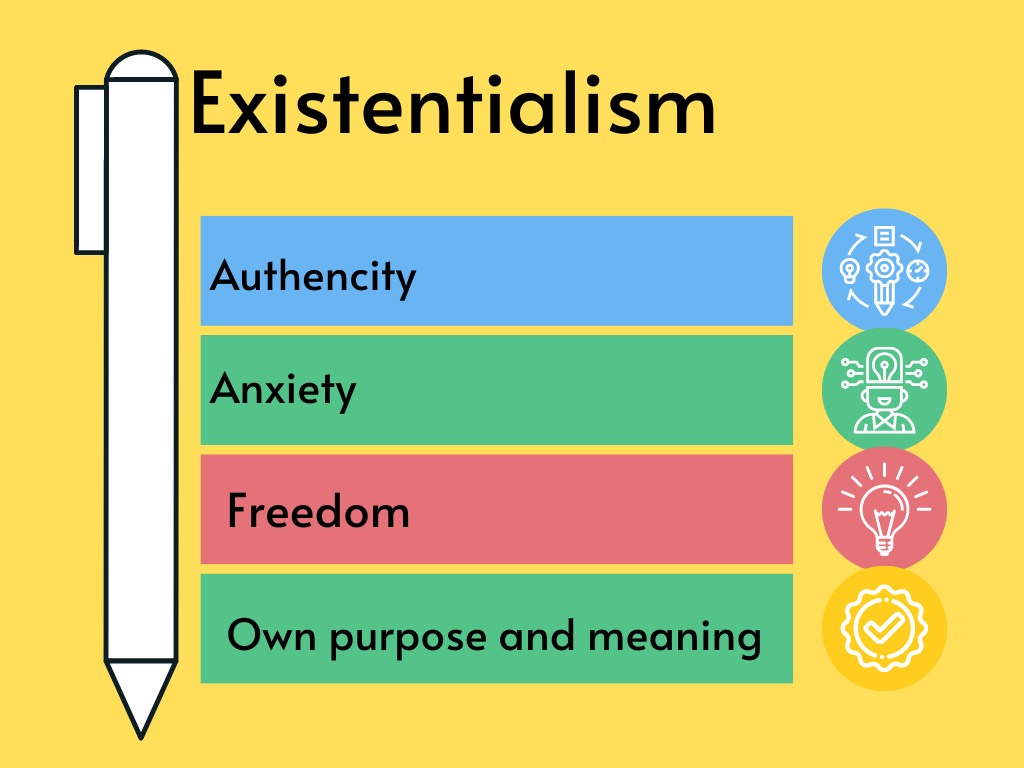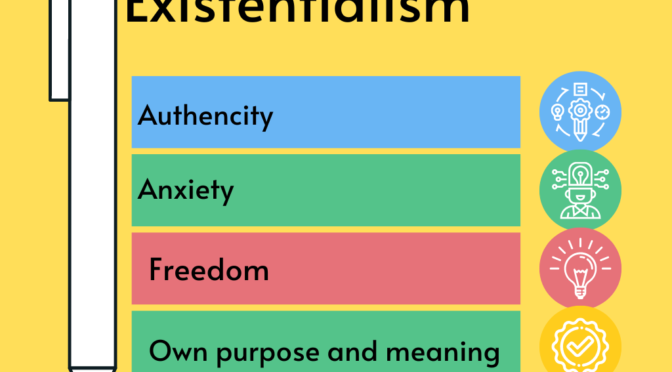Existentialism is a philosophical and literary movement that emerged in Europe in the 20th century, particularly after World War II. It emphasizes individual freedom, authenticity, and choice.
At the heart of existentialism is the belief that individuals must create their own meaning and purpose in life, rather than relying on external factors such as religion or society. Existentialism emphasizes the importance of personal responsibility, as individuals are responsible for their own choices and actions.
Also read: Pragmatism
Some key themes in existentialism include:
- Authenticity: It stresses the importance of being true to oneself and one’s own values, rather than conforming to external expectations or societal norms.
- Freedom: Existentialism emphasizes the individual’s freedom to make choices and create their own path in life, even in the face of difficult or challenging circumstances.
- Anxiety: It recognizes that the freedom to make choices can also lead to anxiety and uncertainty, as individuals must take responsibility for their own lives and accept the consequences of their choices.
- Existential angst: The existentialist perspective often involves a sense of alienation or isolation from the world and a sense of despair or anxiety about the human condition.
- Existential crisis: It recognizes that individuals may experience a crisis of meaning or purpose, and must confront the question of whether life has any inherent meaning or value.
Overall, existentialism is a complex and multifaceted philosophy that emphasizes individual freedom, responsibility, and the creation of one’s own meaning and purpose in life. It has had a significant influence on literature, psychology, and other fields.
Also Visit: Prep with Harshita



Thank you for sharing indeed great looking !
The information shared is of top quality which has to get appreciated at all levels. Well done…
Thank you so much for sharing this wonderful post with us.
Thank you for sharing indeed great looking !
The information shared is of top quality which has to get appreciated at all levels. Well done…
Nice i really enjoyed reading your blogs. Keep on posting. Thanks
A great post without any doubt.
Thank you so much for sharing this wonderful post with us.
Thank you so much for sharing this wonderful post with us.
The information shared is of top quality which has to get appreciated at all levels. Well done…
A great post without any doubt.
Thank you for sharing indeed great looking !
Thank you for sharing indeed great looking !
I like the valuable information you provide in your articles. I’ll bookmark your weblog and check again here frequently. I’m quite sure I will learn plenty of new stuff right here! Good luck for the next!
I have realized that over the course of building a relationship with real estate homeowners, you’ll be able to come to understand that, in each and every real estate transaction, a percentage is paid. In the long run, FSBO sellers don’t “save” the commission. Rather, they try to win the commission through doing a great agent’s task. In this, they devote their money along with time to accomplish, as best they can, the assignments of an real estate agent. Those obligations include disclosing the home by way of marketing, offering the home to willing buyers, creating a sense of buyer desperation in order to trigger an offer, booking home inspections, controlling qualification investigations with the financial institution, supervising repairs, and facilitating the closing of the deal.
Heya i am for the first time here. I came across this board and I find It truly useful & it helped me out much. I hope to give something back and aid others like you aided me.